
The Education Law Center-PA (ELC) has updated our annual “Back to School Guide” with publications on multiple education topics to help students, families, and child-serving professionals.
Click on the topic to jump down to that section.
• What’s New?
• Affirming & Safe Schools, Free from Racism
• Inclusive Schools and Honest Education
• Student Enrollment
• School Discipline
• Addressing Attendance Barriers (Truancy)
• Bullying & Harassment
• Students with Disabilities – IEPs, 504 Plans
• Early Childhood Education
• Students Involved in the Foster Care or Juvenile Justice Systems
• Students Experiencing Homelessness
• Multilingual Students
• LGBTQ+ & Gender-Diverse Students
• Credits and Planning for Graduation
• Self-Advocacy Tools
If you have questions about a particular issue at your school, fill out ELC’s online intake form here (in English o en español).
Or you can leave a message on our Helpline at 215-238-6970 (Eastern and Central PA) or 412-258-2120 (Western PA). Para español, llame al 215-789-2488. We can provide interpretation services to communicate with families in their preferred language.
In addition to understanding the legal rights explained in this guide, you can visit your school district’s website for specific information about how your school educates and supports students. Check your school’s policies to see if children have protections that go beyond the scope of this guide. Check back with us as we will continue to update our materials throughout the school year.

The Education Law Center-PA (ELC) is a nonprofit, legal advocacy organization with offices in Philadelphia and Pittsburgh, dedicated to ensuring that all children in Pennsylvania have access to a quality public education. Through legal representation, impact litigation, community engagement, and policy advocacy, ELC advances the rights of underserved children, including children living in poverty, children of color, children in the foster care and juvenile justice systems, children with disabilities, multilingual learners, LGBTQ+ students, and children experiencing homelessness.
ELC’s publications provide a general statement of the law. However, each situation is different. If you have questions about how the law applies to a particular situation, contact ELC’s Helpline for information and advice or call 215-238-6970 (Eastern and Central PA) or 412-258-2120 (Western PA) ― or contact another attorney of your choice. Para español, llame al 215-789-2488. Or you can fill out an online intake form here.
WHAT’S NEW?
New resources
ELC has updated several fact sheets to reflect changes in the law — and our guide includes new publications on several topics: implementation of the new federal antidiscrimination regulations for Title IX; schools’ obligations under the Sunshine Act and Right-to-Know Law; students’ rights to access their education in hospital settings; early childhood education transitions; and the rights of pregnant and parenting students. We created a new self-advocacy tool for parents or caregivers to request disability-related accommodations.
Check the “New and Notable” section in each issue area below for more information on what’s new.
Also new this year: Significant increases and greater equity in school funding. In Pennsylvania, education is a fundamental right. This year, chronically underfunded public schools received a significant funding boost for the 2024-25 state budget signed into law on July 11. The current budget includes a new “adequacy funding” stream that will drive an additional, recurring $494 million exclusively to school districts that are underfunded relative to their students’ needs.
This represents a paradigm shift, where the majority of new K-12 funding is going to the low-wealth school districts that have historically had the greatest need but have been denied adequate state funding. These are the districts at the center of our successful school funding lawsuit — including the districts that enroll most of the state’s Black and Brown students, which have been acutely impacted by chronic underfunding by the state as well as a long history of racist housing practices. Importantly, the state has now committed to calculating annually Pennsylvania’s school funding shortfall for every district. By this calculation, three-fourths of Pennsylvania school districts are underfunded by the state by a total of $4.5 billion. Given the significant unfilled gaps and lack of a long-term plan to address inadequate state funding of our schools, we will continue to advocate for a plan that ensures constitutional compliance while still celebrating the important investments made this year.

AFFIRMING & SAFE SCHOOLS, FREE FROM RACISM
New and Notable
Discrimination based on hair texture and protective hairstyles: This year, ELC diligently worked to advocate for the passage of H.B. 1394, Pennsylvania’s C.R.O.W.N. Act, which would add to our state non-discrimination law explicit protection against discrimination based on hair texture and protective hairstyles (such as locs, twists, braids, and knots) in our public schools, employment, and beyond. Action on the bill in the state Senate is still pending. Read our flyer on the C.R.O.W.N. Act and find more information in our fact sheet, The Right to Be Free From Racism at School.
Supporting Black girls’ education advocacy: This year, ELC also launched our Supportive Spaces Advocacy Institute workshops, which provide know-your-rights information and opportunities for students who have lived experiences with Black girlhood to hone their advocacy skills. This year’s advocacy efforts included a virtual postcard campaign urging legislators to pass the Pennsylvania CROWN Act and HB 771, which would require the teaching of Black and Latinx studies in Pennsylvania public schools. Stay tuned for forthcoming Supportive Spaces Advocacy Institute initiatives and check out our Black Girls’ Education Justice Initiative to learn more about the eight recommendations from our 2023 report.
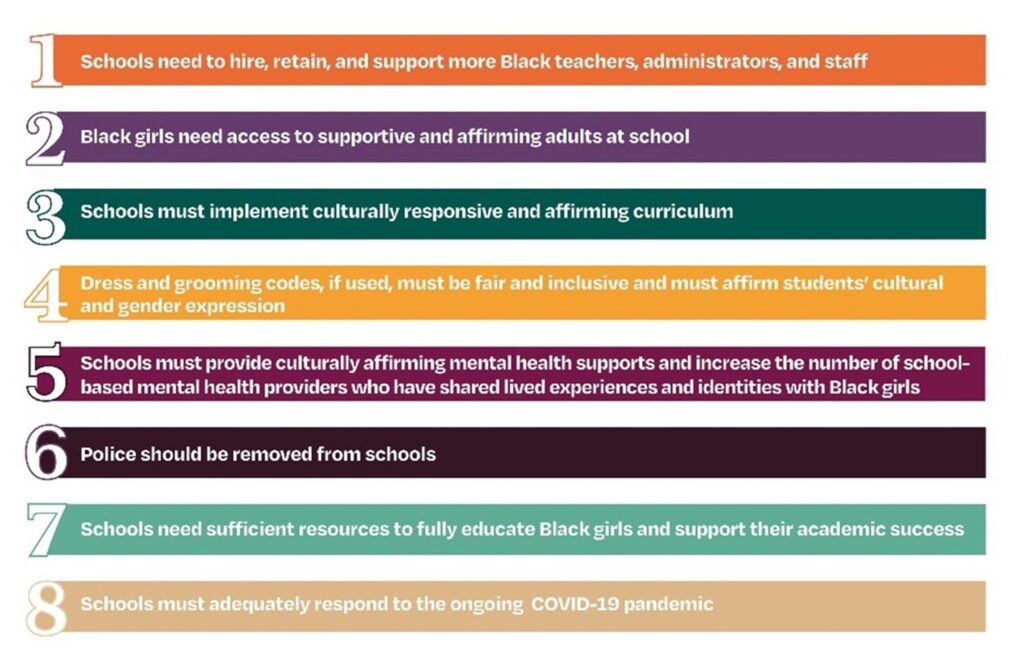
Fact Sheets and Resources
- The Right to Be Free From Racism at School
- Promising Practices to Build Antiracist and Affirming Schools
- Self-Advocacy Tool: Request for Bullying and Harassment Investigation
- Self-Advocacy Tool: Bullying or Harassment Complaint Form Checklist
- How to File a Complaint to the Pennsylvania Human Relations Commission
- Online and Hybrid Learning: An Equity Checklist for Schools
- We Need Supportive Spaces that Celebrate Us: Black Girls Speak Out About Public Schools
- We Need Supportive Spaces that Celebrate Us: Black Girls Speak Out About Public Schools (A Companion Guide to the 2023 Report) [NEW!]

INCLUSIVE SCHOOLS AND HONEST EDUCATION
New and Notable
This past year, extremists continued their targeted attacks to undermine students’ right to read and learn in affirming school environments. Many of the book bans and curriculum bans have focused on erasing the experiences, existence, and contributions of LGBTQ+ students and people. Others have targeted and sought to erase the existence, experiences, and contributions of students and communities of color. Extremist groups have embarked on a concerted effort to undermine the right of trans children to be called by their correct name and pronouns, access the bathroom while at school, and participate in sports. Bullying and harassment based on race, sexual orientation, gender expression, gender identity, and sex continue to be persistent, unaddressed problems in districts across the state.
ELC continues to fight against school board policies excluding transgender students from school, book bans, and other policies that create hostile school environments for LGBTQ+ students and Black and Brown students. A statewide coalition, Pennsylvanians for Welcoming and Inclusive Schools (PA-WINS), is growing as a strong community of parent advocates supporting each other and standing up for our students across the state. Check out the coalition’s resources about book ban policies, and join the group for advocate meetings and additional resources.
ELC supports parents and students considering filing a complaint of discrimination to the U.S. Department of Education or Pennsylvania Human Relations Commission. We continue to advocate for students experiencing race- and sex-based discrimination in Pennridge School District, where we recently filed an amended complaint to the federal Office of Civil Rights.
Fact Sheets and Resources
- 2024 Title IX Regulations and State Anti-Discrimination Laws Continue to Protect Rights of Transgender Students [NEW!]
- New 2024 Title IX Rule: Schools’ Obligation to Ensure Freedom from Sex Discrimination [NEW!]
- Transparency in Schools: Sunshine Act & Right-to-Know Law [NEW!]
- The School Board, Its Power, and How to Advocate
- Challenging Book Bans: What You Can Do
- The Right to Be Free From Racism at School
- Promising Practices to Build Antiracist and Affirming Schools
- The Rights of LGBTQ+ and Gender-Diverse Students
- Students’ Right to Free Speech and Expression in Public Schools
- How to File a Complaint to the Pennsylvania Human Relations Commission

STUDENT ENROLLMENT
New and Notable
In July 2024, Gov. Shapiro signed Act 67 of 2024, formerly House Bill 663, into law, which provides key protections for students whose families are involved in a residency dispute with their local school district. Under this new law, all school entities — including school districts and charter schools — must allow students to continue in their current school program while engaged in any residency dispute and appeals process. The law highlights families’ legal entitlement to a formal residency hearing, including exhausting all appeal mechanisms, prior to any disenrollment. Act 67 further requires schools to consider whether a child is experiencing homelessness and directs districts’ McKinney-Vento liaisons to inform families about protections for students experiencing homelessness in a manner they are able to understand.
Fact Sheets and Resources
- How to Enroll a Child in Public School
- How to Enroll a Child Living with Someone Other Than Their Parent
- Rights of Multilingual Caregivers to Enroll Children in School
- Enrollment Complaint Process
- School Immunization Requirements in Pennsylvania
- School Transportation FAQs
- Virtual School Programs and Cyber Charter Schools: What You Need to Know
- Act 110: Rights of Students Convicted or Adjudicated of Sexual Assault
- Self-Advocacy Tool: Enrollment Complaint Letter
- Self-Advocacy Tool: Sworn Statement by Resident Under § 13-1302
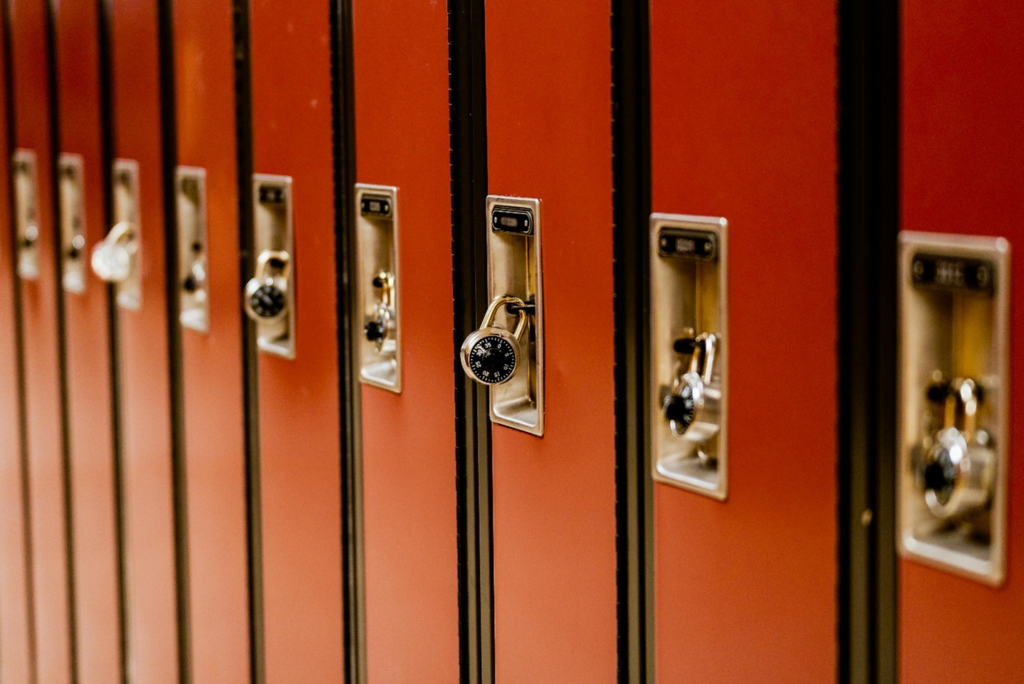
SCHOOL DISCIPLINE
New and Notable
In July 2024, the Civil Rights Division of the United States Department of Justice (DOJ) entered into a settlement agreement with the Wichita School District in Kansas to remedy discrimination against Black students and students with disabilities. The agreement has far-reaching significance for public schools, including those in Pennsylvania. During its investigation, DOJ found that the district violated Title VI of the Civil Rights Act of 1964 by disciplining Black students more frequently and harshly than their white peers who engaged in the same behavior. This includes, for example, disciplining of Black girls using stereotypical terms like “attitude” and “drama.” The settlement agreement requires the school to undertake actions that will address this racially disproportionate discipline. Title VI of the Civil Rights Act prohibits discrimination against students on the basis of race in all public schools, and the settlement agreement provides important examples of actions that all schools should take to prevent and remedy discriminatory school discipline.
Fact Sheets and Resources
- Suspensions in Pennsylvania
- Expulsions in Pennsylvania
- Suspension & Expulsion Toolkit
- Preventing Suspension and Expulsion in Preschool Settings
- Alternative Education for Disruptive Youth (AEDY)
- Alternative Education for Students with Disabilities
- Alternative Education for Multilingual Learners
- Weapons at School: Student Rights and Disciplinary Consequences (Act 26)
- Act 110: Rights of Students Convicted or Adjudicated of Sexual Assault
- Student Rights to Free Speech and Expression in Public Schools
- The Rights of LGBTQ+ and Gender-Diverse Students
- The Right to Be Free From Racism at School

ADDRESSING ATTENDANCE BARRIERS (‘TRUANCY’)
New and Notable
In April,the Pennsylvania Joint State Government Commission issued its report as required by Act 138. The Truancy Process: The Challenge of Improving Attendance in Pennsylvania Schools identified a number of root-cause barriers to regular school attendance for students, including bullying and harassment, ongoing trauma resulting from the COVID-19 pandemic, and systemic racism. The commission specifically acknowledged that truancy is the result of root causes that require more mental health resources and additional school funding for other supports that improve attendance. The report also described the need for additional training of Magistrate District Court judges (MDJs) to understand the underlying causes of truancy and ensure that students and families do not incur fees and fines related to truancy proceedings when they are unable to pay: 33% of MDJs surveyed said they “sometimes” conduct the required ability-to-pay determination and 5% admitted they “never” do.
In February 2024, ELC staff attorney Paige Joki co-authored a newlaw review article, Reproducing Inequality: Racial Capitalism and the Cost of Public Education, a first-of-its-kind analysis of school-based fines and fees, written with Thalia González, professor of law at University of California College of Law, San Francisco. The study is based on first-hand accounts from ELC clients and reviews of 729 school handbooks in Pennsylvania, which contained 3,846 different ways students could be fined or charged while attending public school. Fines and fees follow children from enrollment to graduation. The report revealed that there are no fine-free schools in Pennsylvania and that schools that serve the most children of color are hotspots for fines and fees. ELC urges all Pennsylvania schools to immediately end the practice of imposing economic costs on families, which undermine students’ ability to access and fully participate in their education.
Fact Sheets and Resources
- Addressing Attendance Barriers (‘Truancy’) & School Attendance — FAQs
- School Attendance and Truancy: Understanding the Basics
- A Judge’s Guide to Attendance Barriers and Act 138
- MDJ Truancy Compliance Checklist
- Self-Advocacy Tools: Attendance Barriers Screeners
- Self-Advocacy Tool: Request for Attendance Record Correction
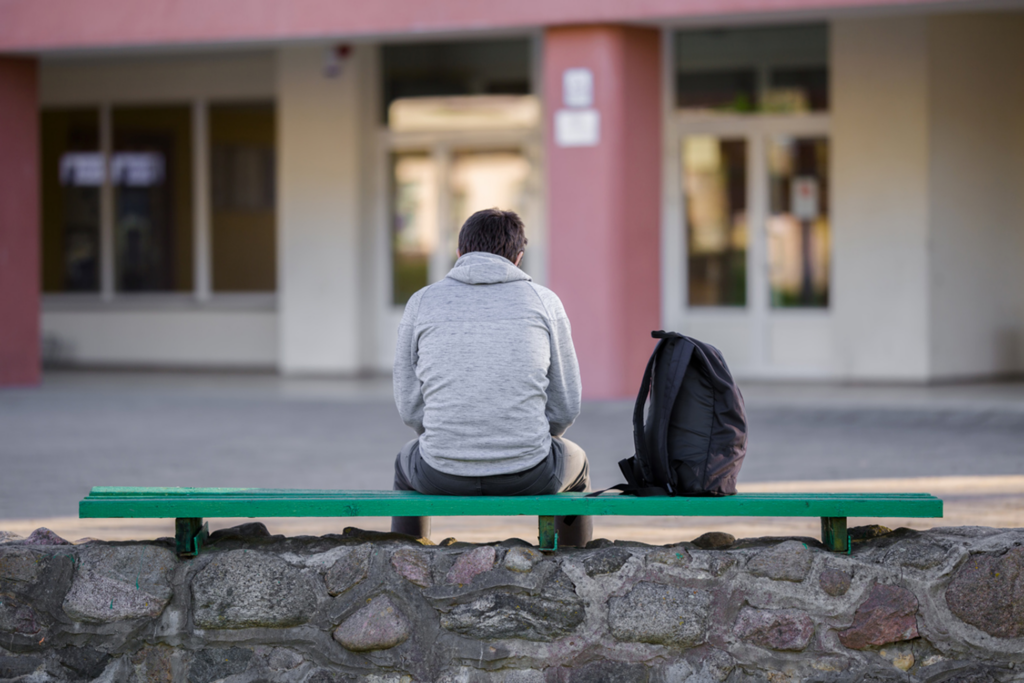
BULLYING AND HARASSMENT
New and Notable
New Title IX rule and lawsuits blocking enforcement: The U.S. Department of Education has published new regulations to help implement Title IX’s prohibition on sex-based discrimination in schools. The 2024 rule clarifies that Title IX prohibits discrimination and harassment based on sexual orientation, gender identity, and sex characteristics; reaffirms the rights of pregnant and parenting students; and broadens the protections for submitting complaints. Read more in our fact sheet about schools’ obligations under the 2024 Title IX rule.
While most Pennsylvania schools are subject to the 2024 Title IX rule, a recent federal court decision in Kansas blocks enforcement of the new regulations in some schools. But importantly, all students at all public schools in Pennsylvania remain protected by Title IX case law and the Pennsylvania Human Relations Act (PHRA), which prohibits gender-based discrimination in education. Read ELC’s explanation of the Kansas case and the list of schools impacted here.
Guidance about harassment and hostile environments: Responding to increases in complaints, the U.S. Department of Education’s Office for Civil Rights (OCR) on May 7, 2024, published a Dear Colleague letter about protections against harassment under Title VI for students who are or are perceived because of their shared ancestry or ethnic characteristics to be Jewish, Israeli, Muslim, Arab, Sikh, South Asian, Hindu, Palestinian, or any other faith or ancestry. Schools have a number of tools for responding to a hostile environment, which they must use while respecting students’ speech rights. Schools can communicate opposition to stereotypical, derogatory opinions; provide support for students affected by harassment; and take steps to establish a welcoming, respectful school campus for students of all races, colors, and national origins.
On July 2, 2024, the OCR released a fact sheet that provides important guidance and examples to help schools identify, prevent, and address harassment that may create a hostile environment based on race, color, or national origin. The fact sheet explains that harassing conduct need not be targeted at a particular person to create a hostile environment, and whether a hostile environment exists is determined by the totality of circumstances. The examples provided illustrate harassing conduct that is pervasive and severe and describe how OCR evaluates whether a school’s responsive action is reasonable, timely, and effective.
For more information on filing a complaint with the U.S. Department of Education Office of Civil Rights to report a Title VI violation of a hostile environment based on race, color, national origin, ethnicity and shared ancestry, refer to the U.S. Department of Education Office of Civil Rights Title VI Fact Sheet and the OCR complaint process.
ELC’s quick reference fact sheet explaining what parents, guardians, and students can do to address bullying and harassment is available in Spanish and Chinese (updated versions coming soon).
Fact Sheets and Resources
- Rights of Pregnant and Parenting Students [NEW!]
- New 2024 Title IX Rule: Schools’ Obligation to Ensure Freedom from Sex Discrimination [NEW!]
- Challenging Sex or Gender-Based Harassment at School: Student Rights & Complaint Options
- What To Do When Your Child Is Bullied or Harassed? A Parent’s Guide to Advocacy in PA Public Schools
- The Right to Be Free From Bullying and Harassment
- Cyberbullying
- The Right to Be Free From Racism at School
- The Rights of LGBTQ+ and Gender-Diverse Students
- Self-Advocacy Tool: Request for Bullying or Harassment Investigation
- Self-Advocacy Tool: Bullying and Harassment Complaint Form Checklist
- ELC Webinar: Race and Sex-Based Discrimination in K-12 Public Schools and related slides

STUDENTS WITH DISABILITIES
Individualized Education Programs (IEPs)
New and Notable
Rights of students in hospitals: ELC has a new fact sheet that outlines the education rights of students in partial and inpatient hospital settings, as well as steps that parents and education decision-makers can take to advocate for these students and ensure that they receive adequate education services, including in psychiatric hospitals. Following ELC advocacy, the School District of Philadelphia issued a new protocol on August 6, 2024, consistent with state and federal law, which outlines the steps that the district will take to identify students in hospital settings and ensure they receive legally required educational services, including special education services.
The Pennsylvania Department of Education (PDE) ordered significant corrective action, including individual compensatory education and system reform, in response to an ELC complaint filed in February 2024. PDE concluded that the School District of Philadelphia failed to comply with multiple legal obligations to ensure a free appropriate public education for children at Pediatric Specialty Care (PSC), a 50-bed hospital for children with complex medical needs.
Requesting accommodations for caregivers: ELC has a new self-advocacy tool for parents, guardians, caregivers, Educational Decision-Makers (EDMs), and surrogate parents who have disabilities to request needed reasonable accommodations, modifications, or services to ensure that they can participate in making educational decisions for their child.
Compensatory services for COVID education deprivation: School districts throughout the commonwealth will continue this year to provide make-up services, or COVID Compensatory Services, to students with disabilities who experienced education deprivation as a result of COVID-19 school closures. This applies to all students with IEPs and Section 504 plans. If you are the parent of a student with a disability in the School District of Philadelphia, you should have received notice about your child’s eligibility for make-up services, or compensatory education, for deprivations of a free appropriate public education from March 2020 through June 2021. If you have not been invited to a meeting and believe that your child may be eligible for these make-up services, contact your child’s school or ELC’s Helpline for more information.
If you are the parent of a student with a disability who attended Pittsburgh Public Schools between March 13, 2020, and June 16, 2022, your child may be eligible for compensatory education services. Please visit the Pittsburgh Public CCS 2.0 webpage to learn more about eligibility determinations, where to obtain make-up services, and who to contact for additional information.
Fact Sheets and Resources
- Special Education Evaluations
- Resolving Special Education Disagreements
- Your Student’s Right to Compensatory Education
- Your Child’s Right to COVID Compensatory Services (CCS)
- Alternative Education for Students with Disabilities
- Student Rights in Hospitals [NEW!]
- Self-Advocacy Tool: Request for Evaluation to Determine Eligibility for Special Education
- Self-Advocacy Tool: Request for Re-Evaluation
- Self-Advocacy Tool: Request to Convene an IEP Meeting
- Self-Advocacy Tool: Request for an Independent Educational Evaluation (IEE)
- Self-Advocacy Tool: Request for Mediation to Resolve Special Education Disputes
- Self-Advocacy Tool: Request for Due Process to Resolve Special Education Disputes
- Self-Advocacy Tool: Request for Disability-Related Accommodations for Parents/Caregivers[NEW!]
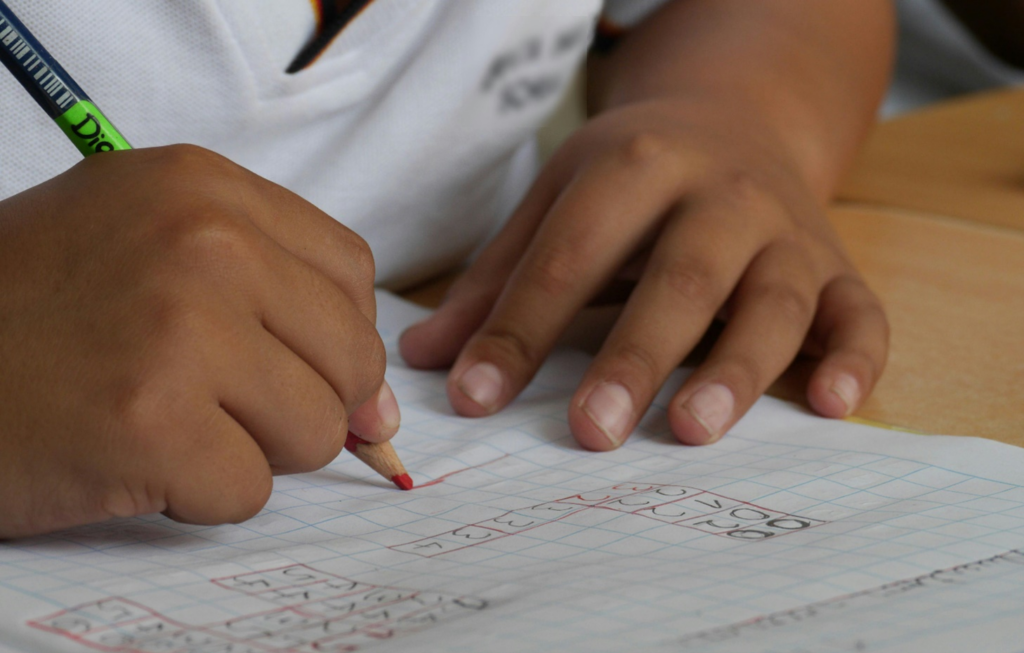
504 Plans
New and Notable
Students who have health conditions, including physical, mental, or behavioral impairments, that require accommodations for them to participate in or benefit from education may be eligible for 504 plans from their schools. For some students, these conditions may be first diagnosed when they are in partial hospitalization or inpatient hospitals. ELC has a new fact sheet that outlines the education rights of students in partial and inpatient hospital settings, as well as steps that parents and education decision-makers can take to advocate for adequate education services for students receiving inpatient care in hospital settings.
Students with 504 plans who experienced educational deprivation as a result of COVID-19 school closures may be entitled to make-up services, or COVID Compensatory Services, from their school districts. If you are the parent of a student with a disability in the School District of Philadelphia, you should have received notice about your child’s eligibility for make-up services, or compensatory education, for deprivations of a free appropriate public education from March 2020 through June 2021. Learn more about your child’s right to COVID Compensatory Services from ELC’s fact sheet.
Fact Sheets and Resources
- Accommodating Health Needs in School: 504 Plans
- Your Student’s Right to Compensatory Education
- Student Rights in Hospitals [NEW!]
- Your Child’s Right to COVID Compensatory Services (CCS)
- Right to Compensatory Damages for Disability Discrimination
- Toxic Schools: What Parents Need to Know
- Self-Advocacy Tool: Request for Disability-Related Accommodations for Parents/Caregivers [NEW!]
- Self-Advocacy Tool: Request for Determination of Eligibility for a §504 Plan

EARLY CHILDHOOD EDUCATION
New and Notable
Early intervention (EI) programs are critical to helping young children with disabilities, including developmental delays, obtain the services and interventions they need. ELC has created a new fact sheet focused on the early intervention system and how to navigate transitioning from EI programs for 0-3 years to Pre-school EI to school age. Learn about the process and your child’s rights and protections.
ELC is part of a coalition focused on improving access to high-quality early care for Pennsylvania’s infants and toddlers and their families. This Early Intervention Part C Workgroup seeks to engage a range of diverse voices, including those of families, to inform our priorities and actions. To help with this effort and stay engaged, please sign up for updates from our workgroup at www.thrivingpa.org.
Children with disabilities who failed to receive appropriate early intervention services during COVID are entitled to compensatory education services (also referred to as “COVID Compensatory Services” or “CCS”) to make up for lost learning. Learn more about your child’s right to COVID Compensatory Services from ELC’s fact sheet.
Fact Sheets and Resources
- Early Intervention: Questions and Answers
- Early Intervention Step-by-Step Guide & Timelines
- Early Childhood Education: Transitioning Through Early Intervention — Birth to School Age [NEW!]
- Your Student’s Right to Compensatory Education
- Your Child’s Right to COVID Compensatory Services
- Preventing Suspension and Expulsion in Preschool Settings
- OCDEL’s Resources for Promoting Inclusion & Reducing Expulsion and Suspension
- ELC Family Guide to Inclusive Early Learning [and Early Intervention] in PA

STUDENTS INVOLVED IN THE FOSTER CARE OR
JUVENILE JUSTICE SYSTEMS
New and Notable
Students in juvenile detention: ELC secured a significant win for students with disabilities placed at the Philadelphia Juvenile Justice Services Center (PJJSC) following ELC’s March 2024 administrative complaint. The Complaint Investigation Report issued by the state Bureau of Special Education in July 2024 found in favor of students on all seven distinct claims where students with disabilities were deprived of a legally compliant education. The issues included implementing and following IEPs, timely re-evaluations, equal access to education for youth in quarantine, and regularly collecting and monitoring student progress on IEP goals. The bureau ultimately ordered the School District of Philadelphia to determine individual compensatory education awards for over 200 students and going forward will initiate special education evaluations for any student at the PJJSC who is suspected to have a disability. The bureau also directed the district to revise its policies and procedures to ensure students at PJJSC can access their education and personnel at the center are trained on child find, data collection, and compliance.
Students in adult jails: In response to an administrative complaint brought by ELC in December 2023, the Pennsylvania Department of Education’s Bureau of Special Education issued a Complaint Investigation Report concluding that Pittsburgh Public Schools failed to meet its obligations to students with disabilities at the Allegheny County Jail — all of whom retain their right to a free appropriate public education under the IDEA. The bureau ordered corrective action, including providing an appropriate education for students with disabilities who turn 18 and were previously deprived of education and for students held in isolation or other more restrictive units.
Unfortunately, we know that the systemic issues identified at the PJJSC and Allegheny County Jail exist in other detention centers and jails across Pennsylvania. Due to the systemic racism in our criminal legal system, the education policies and practices in adult jails disproportionately impact Black and Brown students, who are most harmed by the school-to-prison pipeline.
Education complaint system: Following a settlement with state officials in our ongoing lawsuit, Derrick v. Glen Mills Schools, the Pennsylvania Department of Education (PDE) is creating a new education complaint system for all students in residential facilities, including those placed through the juvenile justice and child welfare systems. PDE’s Office of Program Monitoring and Accountability will oversee the creation of the complaint system, as well as collecting data and conducting site visits at educational programs in these facilities. Look out for new guidance from PDE and local educational agencies responsible for education in these facilities.
Fact Sheets and Resources
- Rights of Students in Foster Care
- School Stability & Immediate Enrollment for Children in Foster Care
- Self-Advocacy Tool: Best Interest Determination for Children in Foster Care
- Educational Rights of Students in the Juvenile Justice System
- Act 1: Supporting Graduation & Equal Access for Students Experiencing Homelessness, in Foster Care, or in the Juvenile Justice System
- Toolkit for Court-Appointed “Educational Decision Makers” (EDMs)
- Blueprint for Change: Education Success for Youth in the Juvenile Justice System
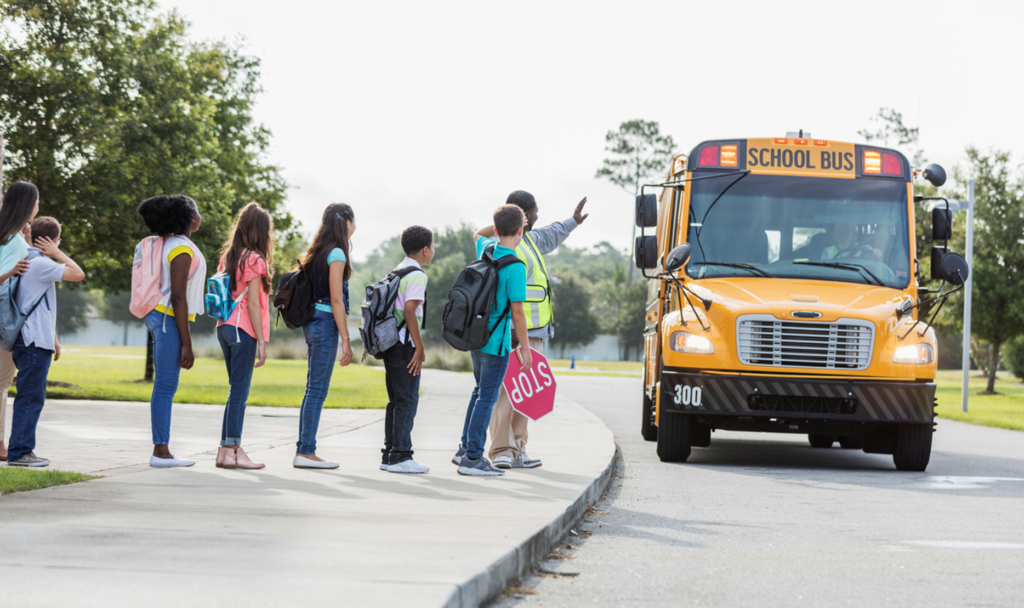
STUDENTS EXPERIENCING HOMELESSNESS
New and Notable
The number of students experiencing homelessness within the School District of Philadelphia has significantly increased. A July 2024 report by the district found that there was a higher percentage of students experiencing homelessness identified in the 2022-23 school year compared to the previous school year. Given this increase, City Council members have urged the School District of Philadelphia to do more to support students experiencing homelessness. Read about ELC’s recommendations to address this issue here.
To learn how the McKinney-Vento liaison supports students at your child’s school, see this directory.
This year, more schools will have supports in place to implement Act 1, which reduces barriers to full participation in school, including eliminating fines and fees, and creates new pathways to graduation for students who experience homelessness who have had at least one school change in a single school year. Learn more about Act 1 in ELC’s fact sheets below.
Fact Sheets and Resources
- The Rights of Students Experiencing Homelessness
- Act 1: Supporting Graduation & Equal Access for Students Experiencing Homelessness, in Foster Care, or in the Juvenile Justice System
- McKinney-Vento and Act 1 Eligibility Screener
- Self-Advocacy Tool: Enrollment Complaint Letter

MULTILINGUAL STUDENTS: STUDENTS & FAMILIES FROM LINGUISTICALLY AND CULTURALLY DIVERSE COMMUNITIES
New and Notable
Translated resources: ELC has translated many of our fact sheets into Spanish, Chinese, Nepali, and Arabic. Our translated 2024 updates are coming soon. Schools, advocates and parents can use common school forms translated into several languages from this translation library associated with the Pennsylvania Department of Education.
Students with foreign transcripts have the right to credits transferred from prior schoolwork that is of comparable scope and quality as U.S. schoolwork. See more information in our fact sheet, Rights of Multilingual and Culturally Diverse Students and Families.
Fact Sheets and Resources
- Rights of Multilingual and Culturally Diverse Students and Families
- Rights of Multilingual Caregivers to Enroll Children in School
- The Right to be Free from Bullying and Harassment
- The Right to Be Free From Racism at School
- Self-Advocacy Tool: Request for Translation and Interpretation Services
- Alternative Education for Multilingual Learners

LGBTQ+ AND GENDER-DIVERSE STUDENTS
New and Notable
New Title IX rule and lawsuits blocking enforcement: On April 19, 2024, the U.S. Department of Education published new regulations to help implement Title IX’s prohibition on sex-based discrimination in schools. The 2024 rule clarifies that Title IX prohibits discrimination and harassment based on sexual orientation, gender identity, and sex characteristics; reaffirms the rights of pregnant and parenting students; and broadens the protections for submitting complaints. Read more about schools’ obligations under the 2024 Title IX rule.
While most Pennsylvania schools are subject to the 2024 Title IX rule, a recent federal court decision in Kansas blocks enforcement of the new regulations against some schools. Importantly, all students in Pennsylvania are protected by state anti-discrimination laws, including the Pennsylvania Human Relations Act (PHRA), which prohibits gender-based discrimination in education, and Title IX case law. Read ELC’s explanation of the Kansas case and the list of schools impacted.
Extremists continue to attack the rights of LGBTQ+ students, and ELC continues to fight against school board policies excluding transgender students from school, book bans, and other policies creating a hostile environment in schools for LGBTQ students and Black and Brown students. It is important to remember that despite the intensifying attacks of extremists, at this time the weight of legal authority in cases supports the rights of LGBTQ+ students in schools. Read our updated fact sheet about the rights of LGBTQ+ students.
Schools cannot require birth certificates to ‘prove’ a student’s sex: Some school districts have implemented new policies requiring students to provide a birth certificate to prove their sex for enrollment and participation in sex-segregated activities. There is no basis in law for this, and it should be reported to ELC and the PA Department of Education. Learn more about how to file an enrollment complaint with PDE here.
Fact Sheets and Resources
- The Rights of LGBTQ+ and Gender-Diverse Students
- Equity in School Sports for Transgender, Gender-Diverse, and Intersex Students
- Analysis: 2024 Title IX Rule and State Anti-Discrimination Law Continue to Protect Transgender Students [NEW!]
- New 2024 Title IX Rule: Schools’ Obligation to Ensure Freedom from Sex Discrimination [NEW!]
- Toolkit for Creating Inclusive and Nondiscriminatory School Environments for LGBTQI+ Students, from U.S. Dept. of Education, U.S. Dept. of Justice, and U.S. Dept. of Health and Human Services (6/2023)
- How to File a Complaint to the Pennsylvania Human Relations Commission
- Challenging Book Bans: What You Can Do
- See also the Inclusive Schools and Honest Education section above.
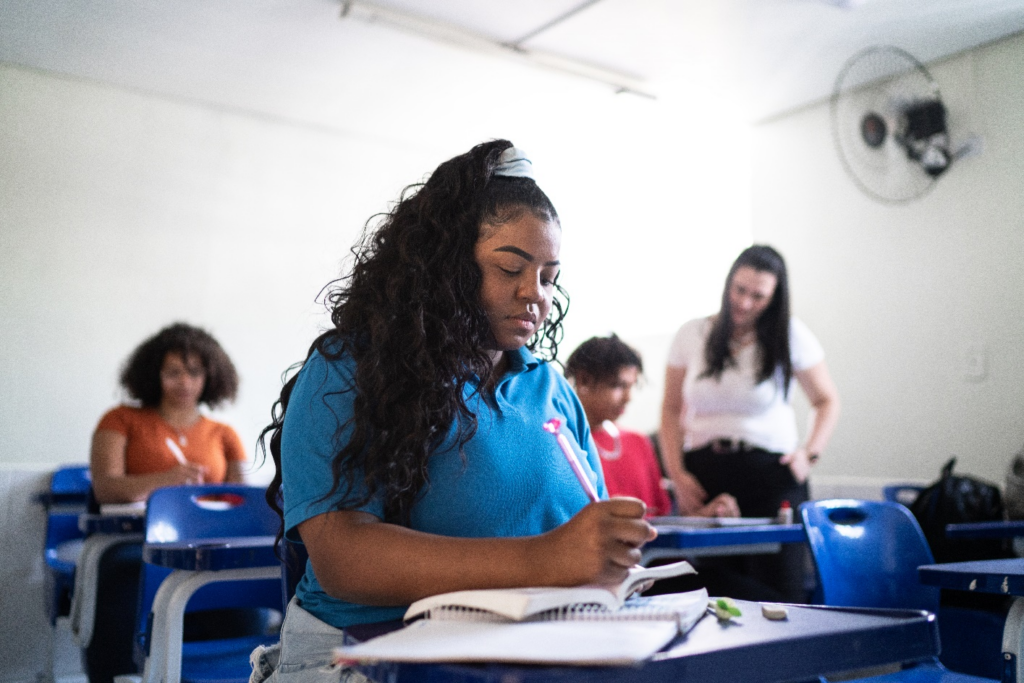
CREDITS AND PLANNING FOR GRADUATION
New and Notable
As more schools have received training and implemented supports under Act 1, ELC continues to field many questions about this impactful law. As a new school year begins, we remind schools that Act 1 applies to students who experience homelessness or are in the foster care or juvenile justice systems and who experience at least one school move in a year. Notably, many districts and charter schools have extended this law to apply to other student cohorts such as students who are pregnant and parenting, students who are immigrants, and other highly mobile students. Under Act 1, schools must accept credits already recognized by a prior school and may work with a student to develop a new pathway to graduation.
Fact Sheets and Resources
- Graduation Requirements in Pennsylvania
- Act 1: Supporting Graduation & Equal Access for Students Experiencing Homelessness, in Foster Care, or in the Juvenile Justice System
- View a recorded webinar on implementing Act 1 produced by ELC and Juvenile Law Center
- View a recorded training created by PDE on Act 1
- PDE’s guidance for Act 1 of 2022: Supporting Graduation For Students Experiencing Education Instability
- Act 1 Point of Contact Checklist
- Tips and Best Practices for Act 1 Points of Contact: Lessons from Youth with Lived Experience
- Act 1 Self-Advocacy Tool: Request for Assignment of an Act 1 Point of Contact
- Act 1 Self-Advocacy Tool: Request for Credit Assessment and Graduation Plan
- Act 1 Self-Advocacy Tool: Request to Participate in a School-Sponsored or Extracurricular Activity
- Act 1 Self-Advocacy Tool: Request to Eliminate Fines or Fees
- Act 1 Self-Advocacy Tool: Request for Act 1 Graduation Support Retroactive to School Year 2021-2022
- Developing an IEP Transition Plan

SELF-ADVOCACY TOOLS
ELC created a series of fillable self-advocacy tools for parents, guardians, educational decision-makers (EDMs), surrogate parents, and advocates to address some of the most common barriers to school success. You will find them referenced in the sections above. Each tool is free to use; most are fillable forms.
To learn more about specific education rights students have across a variety of topic areas, please review the sections above and see the fact sheet section of our website.
Resources
Enrollment
- Self-Advocacy Tool: Enrollment Complaint Letter
- Self-Advocacy Tool: Sworn Statement by Resident Under § 13-1302
Attendance
- Self-Advocacy Tool: Family Needs Self-Assessment to Address Attendance Barriers
- Self-Advocacy Tool: School Attendance Barriers and McKinney Vento Screener
- Self-Advocacy Tool: MDJ Screener to Address Truancy Referrals
- Self-Advocacy Tool: Request for Attendance Record Correction
Special Education
- Self-Advocacy Tool: Request for Determination of Eligibility for a §504 Plan
- Self-Advocacy Tool: Request for Evaluation to Determine Eligibility for Special Education
- Self-Advocacy Tool: Request for Re-Evaluation
- Self-Advocacy Tool: Request for an Independent Educational Evaluation (IEE)
- Self-Advocacy Tool: Request to Convene an IEP Meeting
- Self-Advocacy Tool: Request for Mediation to Resolve Special Education Disputes
- Self-Advocacy Tool: Request for Due Process to Resolve Special Education Disputes
- Self-Advocacy Tool: Request for Disability-Related Accommodations for Parents/Caregivers [NEW!]
Multilingual Students and Families
McKinney-Vento Eligible Students (Students Experiencing Homelessness)
Students in Care
Addressing Bullying/Harassment
- Self-Advocacy Tool: Request for Bullying/Harassment Investigation
- Self-Advocacy Tool: Bullying and Harassment Complaint Form Checklist
- Fact Sheet: How to File a Complaint With the Pennsylvania Human Relations Commission
Act 1 (access descriptions and links to all our Act 1 self-advocacy tools here)
- Self-Advocacy Tool: Request for Assignment of an Act 1 Point of Contact
- Self-Advocacy Tool: Request for Credit Assessment and Graduation Plan
- Self-Advocacy Tool: Request to Participate in a School-Sponsored or Extracurricular Activity
- Self-Advocacy Tool: Request to Eliminate Fines or Fees
- Act 1 Self-Advocacy Tool: Request for Act 1 Graduation Support Retroactive to the School Year 2021-2022
Happy Back To School!
-September 2024
